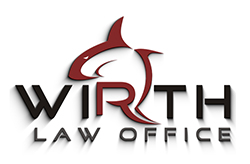Understanding Trust Types: Key Differences Explained Simply
Hi, I’m Oklahoma City attorney Meg Prestidge, and I want to answer a question that I get asked often: what is the difference between a revocable living trust, a testamentary trust, and an irrevocable trust? A revocable living trust is created during your lifetime, and it is exactly like it says. It’s revocable during your lifetime, meaning you can make changes or revoke it as you see fit.
All of the terms of that trust become irrevocable at your death. You are the only one who is allowed to revoke the trust or make changes to its terms. This flexibility allows you to manage your assets effectively while you are alive, but you should consider how your assets will be handled after your passing.
The Nature of Testamentary Trusts
A testamentary trust is a trust that is created through probate by the terms of your last will. We see testamentary trusts when certain assets are to be distributed after your death. For instance, trust A may be created for the spouse, while trust B and others are established for children with their own set of identified assets.
In summary, testamentary trusts are creatures of probate, which means they do not take effect until after your death. This can provide a structured way to manage and distribute your assets according to your wishes as laid out in your will.
Understanding Irrevocable Trusts
Now, let’s discuss irrevocable trusts. An irrevocable trust is generally an estate planning tool where you want to identify certain assets that will go to your specified beneficiaries. Once you create this trust, you cannot control those assets; you must give up control entirely.
This means you need to ensure that these are not assets you require or intend to manage after setting up the trust. If you retain control, the IRS may not deem it an irrevocable trust, which is crucial for achieving your estate planning goals. Additionally, establishing an irrevocable trust can help protect your assets if you need to qualify for Social Security or Medicare for end-of-life care.
Take Action Today!
If you’d like to discuss this and other issues, please don’t hesitate to reach out. I offer a low-cost consultation to help clarify your estate planning needs and the best options available to you. You can contact a trust lawyer in OKC at 405-888-5400 or visit my website at theoklahomacityattorney.com.








